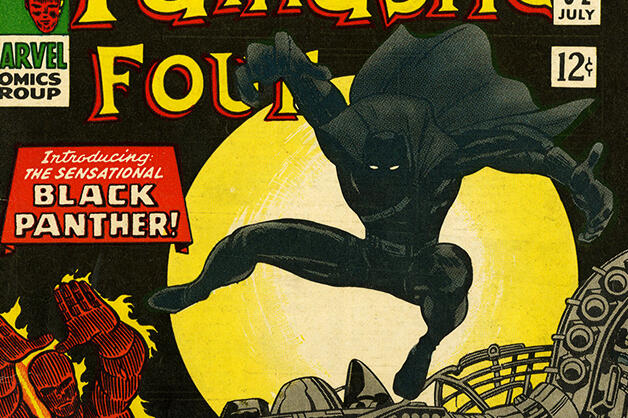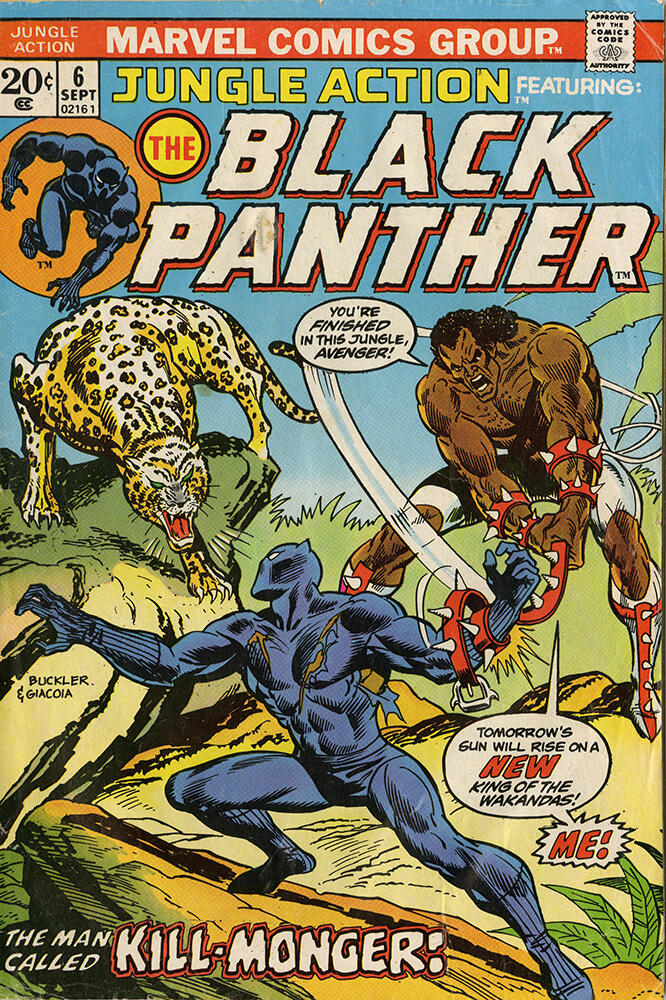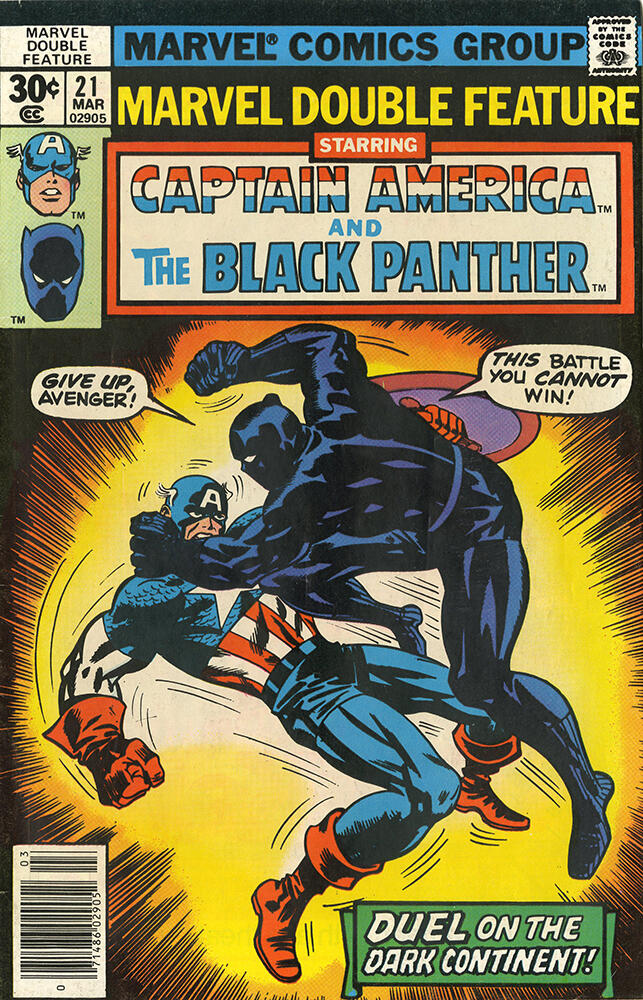
Feb. 14, 2018
As ‘Black Panther’ debuts Friday, VCU Libraries’ resident comics expert talks the history and cultural impact of the iconic black superhero
Share this story
VCU Libraries’ Comic Arts Collection includes approximately 175,000 items, including more than 100 issues of “Black Panther” and related comics, notably including T’Challa’s first appearance in “Fantastic Four” No. 52 that was published in July 1966.
With “Black Panther” debuting in theaters Friday, Cindy Jackson, library specialist for comic arts for Special Collections and Archives in James Branch Cabell Library, discussed the important role Black Panther has played in the comic arts, American culture and black history.
It’s widely known that Black Panther is the first superhero of African descent in mainstream American comics. Beyond that, what are some reasons that this character is noteworthy in the annals of the comic arts?
One of the most distinguishing characteristics of Black Panther is that his alter-ego is T’Challa, King of Wakanda, the richest nation in the world. He is royalty. That is what truly sets Black Panther apart from the other extraordinarily wealthy superheroes like fellow Marvel superhero Tony Stark (Iron Man) and DC Comics’ Bruce Wayne (Batman), who earned their means through inheritance and enterprise. Also, unlike his counterparts, T’Challa has actual superpowers in addition to access to the state-of-the-art technologies at his disposal as part of an advanced society.

As VCU’s resident expert on the comic arts, what thoughts do you have to share about the forthcoming film “Black Panther,” which opens Friday?
For starters, I’m super excited for the film. I also believe it’s the right time, right now for a Black Panther movie. Marvel has set a very high bar for what a comic book superhero movie can be over the last 10 years and I think they can finally do the character and his origin story justice. Film technology is now to the point that the world of Black Panther can be fully realized on-screen. I can’t wait to see how amazing it will be just judging from what I’ve seen in the movie trailer.
How does Black Panther compare with other African or African-American voices and characters in the comic arts? What distinguishes him from others?
T’Challa is royalty. He is the leader of a forward-thinking, wealthy, independent African nation that was never colonized. He does not come from the same sort of crime-ridden, inner-city background like the other two major African-American superheroes introduced in roughly the same time period — Sam Wilson (Falcon) and Luke Cage (Power Man). T’Challa has never had to suffer the racial injustices that faced African-Americans.
Can you describe the primary artistic elements (look and feel, figures and costumes) of the Black Panther comics?
Jack Kirby’s original concept for Black Panther’s costume was stereotypical superhero fare with colorful bodysuit, cape and boots reminiscent of something Superman would wear. By the time [Black Panther] made his first appearance in “Fantastic Four” No. 52 (1966), the costume was a full black, sleek bodysuit with catlike ears made of vibranium, the abundant mineral found in Wakanda. The costume is meant to represent the power and gracefulness of the big cat [from which] the Panther Tribe derives their name. Naturally the costume has changed over the years as artwork in comics evolved from simple four-color printing to more sophisticated digital artwork.

At the time of initial creation, can you explain the character’s ties or lack thereof to the Black Panther political movement/party?
The creation of the Black Panther character predates the formation of the Black Panther political party by a few months in 1966, and there was never any connection between the two. Stan Lee was still concerned enough about the potential connotations in the early 1970s to briefly change the title to Black Leopard.
If a student approached you for advice about possibly doing further research or even a paper about Black Panther, what three pieces of advice/guidance would you offer to get him or her started?
- Make an appointment with me to discuss your research. I’m very happy to help!
- Have an idea of what you want to focus on before coming in. Help me help you!
- Don’t wait until the last minute to do your research. Comics research is more involved than you realize!
VCU Libraries’ Comic Arts Collection includes comic books, original art, graphic novels, reference books and more. The Special Collections and Archives department on the fourth floor of Cabell Library is open to scholars, students and researchers and welcomes individuals who just would like to read comics for pleasure. If you would like to see a comic book, use the Comic Book Index to search through the collection and identify what you'd like to see. Visit Special Collections and Archives on Monday through Friday from 9 a.m. to 5 p.m. and we will retrieve the item for you to view in our reading room.
Subscribe for free to the VCU News email newsletter at http://newsletter.news.vcu.edu/ and receive a selection of stories, videos, photos, news clips and event listings in your inbox every Monday and Thursday during the academic year and every Thursday during the summer.
Subscribe to VCU News
Subscribe to VCU News at newsletter.vcu.edu and receive a selection of stories, videos, photos, news clips and event listings in your inbox.













